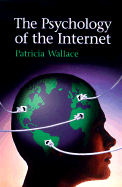Book contents
- Frontmatter
- Contents
- PREFACE TO THE PAPERBACK EDITION
- 1 THE INTERNET IN A PSYCHOLOGICAL CONTEXT
- 2 YOUR ONLINE PERSONA: THE PSYCHOLOGY OF IMPRESSION FORMATION
- 3 ONLINE MASKS AND MASQUERADES
- 4 GROUP DYNAMICS IN CYBERSPACE
- 5 INTERGROUP CONFLICT AND COOPERATION
- 6 FLAMING AND FIGHTING: THE PSYCHOLOGY OF AGGRESSION ON THE NET
- 7 LIKING AND LOVING ON THE NET: THE PSYCHOLOGY OF INTERPERSONAL ATTRACTION
- 8 PSYCHOLOGICAL ASPECTS OF INTERNET PORNOGRAPHY
- 9 THE INTERNET AS A TIME SINK
- 10 ALTRUISM ON THE NET: THE PSYCHOLOGY OF HELPING
- 11 GENDER ISSUES ON THE NET
- 12 NURTURING LIFE ON THE INTERNET
- Index
10 - ALTRUISM ON THE NET: THE PSYCHOLOGY OF HELPING
Published online by Cambridge University Press: 05 August 2012
- Frontmatter
- Contents
- PREFACE TO THE PAPERBACK EDITION
- 1 THE INTERNET IN A PSYCHOLOGICAL CONTEXT
- 2 YOUR ONLINE PERSONA: THE PSYCHOLOGY OF IMPRESSION FORMATION
- 3 ONLINE MASKS AND MASQUERADES
- 4 GROUP DYNAMICS IN CYBERSPACE
- 5 INTERGROUP CONFLICT AND COOPERATION
- 6 FLAMING AND FIGHTING: THE PSYCHOLOGY OF AGGRESSION ON THE NET
- 7 LIKING AND LOVING ON THE NET: THE PSYCHOLOGY OF INTERPERSONAL ATTRACTION
- 8 PSYCHOLOGICAL ASPECTS OF INTERNET PORNOGRAPHY
- 9 THE INTERNET AS A TIME SINK
- 10 ALTRUISM ON THE NET: THE PSYCHOLOGY OF HELPING
- 11 GENDER ISSUES ON THE NET
- 12 NURTURING LIFE ON THE INTERNET
- Index
Summary
Just as in real life, the news rarely carries stories of how humans behave kindly, even nobly toward one another on the Internet. While stalking, cybercrime, mass protests, or pornography rings grab the attention of journalists, the less-sensational human interest stories might be treated more as filler for the back of the magazines. Yet behind the scenes, random acts of kindness occur regularly, and people might be surprised to learn how altruistic net users can be.
RANDOM ACTS OF KINDNESS: INTERNET STYLE
Paradoxically, the net's psychological spaces seem to support and encourage high levels of altruism, when at the same time they can release higher levels of aggression. For example, the net has a long history of volunteerism, and thousands of people give their free time to staff help desks, maintain servers, offer assistance to newbies, and moderate discussion forums. Those telecommunications lines are carrying speedy replies to calls for help – right along side the seedier and meaner bit streams.
People on the net are willing to help one another in small and sometimes very large ways. Helpful replies to requests for information are extremely common, and the willingness of so many to provide assistance is one of the main reasons people participate in discussion forums. Someone sends a short message to a mailing list about boating: “Does anyone know where to get information about good sailing schools?”
- Type
- Chapter
- Information
- The Psychology of the Internet , pp. 190 - 207Publisher: Cambridge University PressPrint publication year: 1999
- 1
- Cited by



